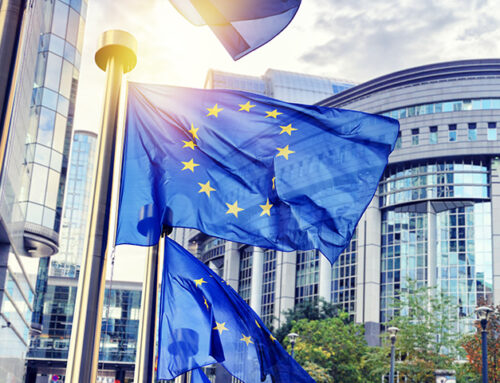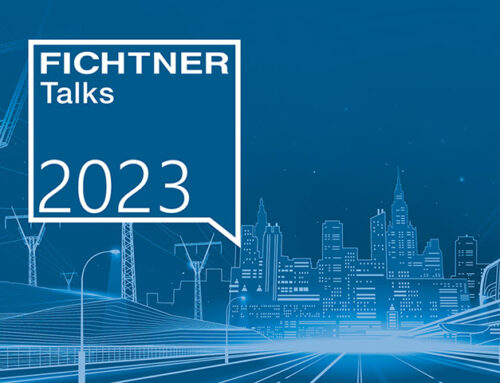FICHTNER Talks 2019
A moderator’s balancing act of remaining neutral in a highly political context
20 September 2019 was a turbulent and exciting day for environmental politics. “Fridays for Future” organizers were calling for a global climate strike, while the German government’s climate cabinet was announcing its long-awaited climate action plan – so there would be plenty to fuel debate at the Fichtner Talks, which were scheduled to take place just two workdays later.
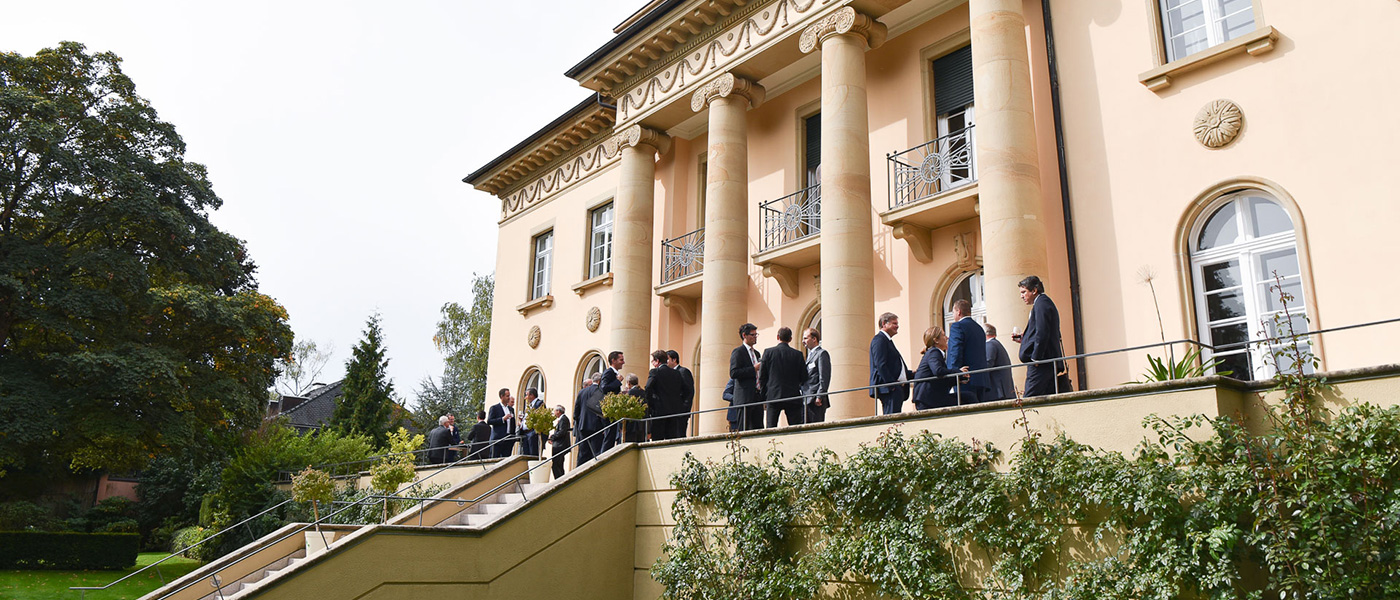
With over 100 participants already registered, the event at Villa Levi had been fully booked for a long time, and the organization team was on-site rehearsing all the details of the schedule one last time. The event’s motto of “System integration! – Smart ways to the energy future” is a hot topic at the moment. It spells out that the key to success lies in taking an integrated approach to all infrastructure components of the energy transition. After all, if the overall system is to work and the targets already committed to by politicians are to be met, then not only the technical but also the economic and social elements of renewable energy systems will have to work together in real time as well as on time. With high expectations being placed on the general direction of future climate policy, the climate cabinet’s decision was eagerly anticipated.
Yet during a meeting with the speakers on the eve of the event, we realized that the approach taken by the climate cabinet, with its many individual measures and its barely noticeable CO2 price, is hardly conducive to the idea of system integration. From a scientific point of view, the presented climate plan does not comply with the principles of system theory. Given the ambitious targets for massive reductions in CO2 emissions, it seems doubtful that this package of time-consuming individual measures will be effective. Politically speaking, the reasoning given by the authors of the climate action plan could be construed as prioritizing other objectives, such as acceptance and reasonableness, over rapid CO2 reduction.
Neutrality versus objective criticism
As moderator of the Fichtner Talks, I found myself in something of a tricky situation: Was I to remain neutral or speak my mind? The verb “to moderate” stems from the Latin “moderare”, meaning refrain, control, or steer. Under our company guidelines, a moderator representing Fichtner GmbH & Co. KG is, of course, to be objective and impartial. On the other hand, it would have been absurd to just ignore the breaking news of the decision on the climate action plan. That would have led to the break-time chats being more interesting than the presentations themselves. Without further ado, I sought out Georg Fichtner and had a memorable conversation with him in the third-floor corridor. I explained to him that in my introductory speech I intended to confront the climate cabinet’s scientifically objectionable approach. He himself was planning to weave a political assessment into his welcoming address, and he backed me up in my intention. After all, a start had already been made with the climate action plan. So I proceeded as intended – the result being that our auditorium then spent the rest of the day discussing the role of system integration, based on the common thread we had established.
How smart do we want to live?
Prior to the expert technical presentations, Fred Koblinger, President of BBDO Group Austria and a communications philosopher, gave the predominantly engineering-based audience in the auditorium much to ponder. This centered around the impacts of digital transformation on society and fundamental questions as to how “smart” we want to live and what price we are willing to pay to do so. Ultimately, system integration is both a curse and a blessing, but the necessity of digitization is irreversible. Thanks to technical progress and artificial intelligence, the problem of the energy transition will presumably be less technical than cultural in nature, begging the question: How much freedom are we willing to sacrifice for the sake of greater security?
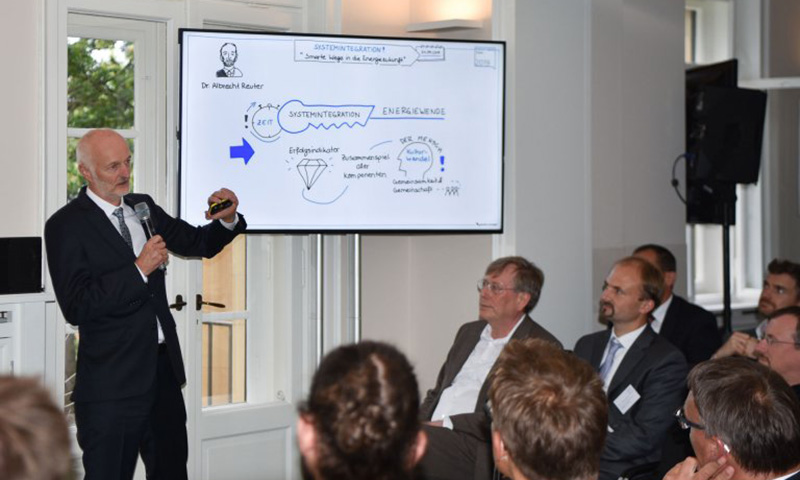
No carbon neutrality without Europe
Professor Christian Rehtanz, head of the Institute of Energy Systems, Energy Efficiency and Energy Economics (ie3) at the Technical University of Dortmund, has conducted scenario analyses showing that the amount of energy in the distribution grid will triple by 2050 compared to today’s levels. Innovation is required if we are to avoid having to expand the grid capacities to a similarly drastic extent. It is therefore absolutely necessary that decentralized and Europe-wide structures work together. The challenges posed by the energy transition can essentially be overcome only by means of international cooperation, while nations that go it alone will eventually hit a brick wall in terms of what is feasible. Everyone is therefore urged to do their best to create a renewable energy system that is interconnected on an international level.
The energy transition is changing technology and organization
Further presentations showed how and why business models, especially those of municipal utilities, will be fundamentally changed in the world of renewables. As a result of increasing complexity and the large number of current collaboration models, the existing competitive arenas will largely disappear. The same applies to how key players in the industry are organized, with agile forms of cooperation now supplanting traditional hierarchical models. The sophisticated design of attractive value-added services is seen as having great potential for the future – especially for municipal utilities who are confronted with drastically shrinking profit margins from their traditional energy business.
FICHTNER Talks: an expert forum with a critical eye
Since the topic was too broad and intriguing to finish discussing it in the time available, we decided spontaneously to continue the debate in a workshop format as a Fichtner forum under the title of “sector coupling” at Villa Levi, and we have received many registrations for that event already. At the next Fichtner Talks on 22 September 2020, we will discuss the initial impacts of the climate action plan. I already have a number of prominent speakers in mind who have made this topic their life’s work.
February 2020
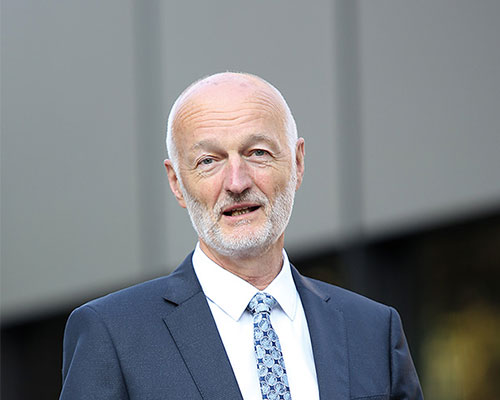
Dr.-Ing. Albrecht Reuter
Scientific Director of the FICHTNER Talks
Managing Director of Fichtner IT Consulting GmbH

